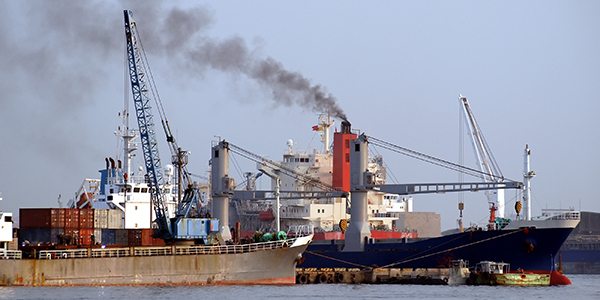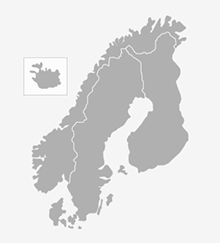Maritime transport is a major source of emissions of harmful air pollutants and carbon dioxide. In a new project, a research team from the Swedish National Road and Transport Research Institute (VTI) and the University of Gothenburg has received SEK 6.4 million to analyse policy instruments and measures that can reduce emissions from maritime transport most cost-effectively.

Photo: Mostphotos
“There is a major need for knowledge of how the environmental effects of maritime transport can be reduced, and this project will enable us to expand that knowledge considerably. We are doing so based on our expertise in both transport economics and the environment”, said VTI Director General Tomas Svensson.
Maritime emissions of carbon dioxide and air pollutants such as sulphur dioxide, nitrous oxides, and particulate matter affect human health and the environment. Even modern vessel engines usually produce higher emissions of air pollutants per unit of power output than do lorry engines.
“This is a very important project, partly because maritime transport is accounting for a growing share of our environmental burden, and discussions about switching more goods shipments from roads to waterways are ongoing”, said VTI researcher Inge Vierth, who is heading the project.
It is necessary to develop new and improve existing policy instruments, as we cannot expect that the maritime industry will voluntarily do what is needed to achieve our environmental quality goals in Sweden. Earlier studies have not determined which policy instruments and measures can cost-effectively reduce all types of pollution, including carbon dioxide emissions, from maritime transport. The researchers in this project will study both the actions taken by vessel owners or operators in response to new or changed policy instruments, and the actions that they take on their own initiative.
“We are looking forward to working on the project along with our colleagues at the University of Gothenburg. To get all the key operators on board, we have also formed a reference group comprising outside experts from the research world, the business community, environmental organisations, and government agencies”, said Vierth.
Maritime emissions have been less regulated than have land-based emissions. The issue is a complex one, partly because regulations governing maritime emissions are determined mainly at the international level. This project seeks to recommend cost-effective combinations of policy instruments that can help achieve four of the environmental quality goals adopted by the Swedish parliament, i.e., limited climate impact, fresh air, natural acidification only, and no over-fertilisation.
The project “Morötter och piskor inom sjöfarten för att uppnå miljökvalitetsmål” (Carrots and sticks in maritime transport to achieve environmental quality goals) is being jointly and equally funded by the Swedish Transport Administration and Vinnova to a total of SEK 6.4 million. The project will be completed by the end of 2019.
 Contact:
Contact:
Inge Vierth
inge.vierth@vti.se
VTI, Sweden






Follow us: